Ippon - Judo Term Explained
Share

Imagine stepping onto the mat and feeling the adrenaline rush through your veins.
In the world of judo, one ultimate goal is scoring an ippon. This single word holds immense significance, representing the pinnacle of success in this martial art.
With its four criteria and various techniques, achieving an ippon requires skill, precision, and determination.
In this article, we will explore the art of securing an ippon in judo, delving into the techniques and strategies that can lead you to victory.
Key Takeaways
- - Ippon" (一本) translates to "one full point
- - Ippon signals an immediate victory, ending the match.
- - Ippon reflects the philosophy of Judo, emphasizing efficiency and respect for one's opponent.
The Significance of Ippon in Judo
You should understand the significance of scoring an ippon in Judo.
It goes beyond just earning points; it has a profound psychological impact on the player and the opponent.
Scoring an ippon requires physical strength, tactical strategies, and precise techniques.
Athletes spend hours training for ippon, perfecting their throws and groundwork, aiming for that perfect execution.
Famous ippon moments are often remembered as iconic displays of skill and mastery.
In competition, ippon plays a crucial role as it signals an immediate victory, ending the match.
It isn't just a measure of skill but also reflects the philosophy of Judo, emphasizing efficiency and respect for one's opponent.
Understanding the significance of ippon gives you a deeper appreciation for the art and sport of Judo.
Scoring an Ippon: The Four Criteria
To score an ippon in Judo, you must meet the four criteria within a specific timeframe and execute them with precision.
These criteria include a clean throw, a controlled landing, forcefulness, and continuation.
Timing and precision are crucial when attempting Judo techniques for ippon. You must anticipate your opponent's movements and execute your technique correctly.
Strategies to score ippon in Judo involve setting up your opponent, creating opportunities, and exploiting their weaknesses.
It's important to be aware of your opponent's counters and to have effective defensive techniques to defend against ippon techniques.
Training drills for ippon in Judo focus on improving technique, speed, and reaction time.
Mental preparation is key in aiming for ippon, requiring focus, confidence, and a winning mindset.
Analyzing famous ippon moments in Judo history can provide valuable insights and inspiration for aspiring Judokas.
| Criteria | Description |
|---|---|
| Clean throw | Executing a throw without any loss of control or grip |
| Controlled landing | Ensuring your opponent lands on their back |
| Forcefulness | Demonstrating power and control during the throw |
| Continuation | Maintaining control and transitioning into groundwork |
Immobilization Techniques for an Ippon
When executing an ippon, focus on the immobilization techniques and utilize strength and precision.
Effective gripping is crucial in gaining control over your opponent.
Mastering the timing and balance is essential for executing a successful throw that can transition seamlessly into an immobilization technique.
Utilize ground techniques to maintain control and prevent your opponent from escaping.
Combining techniques adds unpredictability to your attacks, increasing the chances of immobilizing your opponent.
Explore arm-lock variations to find the most effective one for each situation.
Remember to stay alert and adapt quickly to counter your opponents' defenses.
Chokes and Joint Locks: Forcing an Ippon
Use a combination of chokes and joint locks to force your opponent into an ippon quickly.
When it comes to achieving an ippon in Judo, mastering counter techniques and defensive strategies is crucial.
You can effectively exploit your opponents' weaknesses by understanding advanced submissions and escaping chokes.
Transitioning from throws to submissions is a skill that requires practice and precision.
Training drills specifically designed to improve ippon techniques can enhance your overall performance.
These drills focus on timing, technique, and fluidity, allowing you to execute chokes and joint locks seamlessly.
Remember always to prioritize safety and respect your training partner's limits.
With dedication and perseverance, you can develop a formidable arsenal of techniques that will significantly increase your chances of forcing an ippon in Judo.
Determining the Winner: Ippon Vs. Other Scores
You should consider the advantages and disadvantages of awarding an ippon versus other scores in Judo.
In Judo matches, different types of scores can be awarded to determine the winner. One of the most coveted scores is the ippon, which signifies a full point and an immediate victory.
However, other scores such as waza-ari and yuko, can contribute to the outcome of a match.
Strategies to avoid getting scored with an ippon include maintaining a strong defensive posture, utilizing effective grip fighting techniques, and executing precise and powerful offensive moves.
Controversial ippon decisions in judo competitions have sparked much debate and analysis, as they can heavily impact the outcome of a match.
The role of ippon in determining the winner is crucial, as it holds more weight than other scores.
Training exercises to improve ippon-worthy techniques in judo involve practicing throws and groundwork techniques with precision and speed.
Comparing ippon in judo to knockout in other combat sports, both carry a significant psychological impact.
Scoring an ippon can boost a judoka's confidence and morale while demoralizing their opponent.
Overall, the ippon holds a special place in judo and is a goal every judoka aspires to achieve.
| Advantages of Ippon | Disadvantages of Ippon |
|---|---|
| Immediate victory | Subjective judging |
| Highest score | Controversial decisions |
| Boosts confidence and morale | Can demoralize opponents |
Mastering Techniques for Ippon in Judo
Practice and repetition are key in mastering the techniques for ippon in Judo. To achieve effective throws and perfect timing, focus on the following:
- Proper grip
- - Adjust your grip to gain control and maintain a strong connection with your opponent.
-
- Use different grips to exploit weaknesses and disrupt your opponent's balance.
-
Balance and stability
- - Develop a strong base and maintain good posture to stay balanced during throws.
- - Practice exercises that improve stability and body control.
To enhance your control and execution, consider the following:
- Exploiting weaknesses
- - Analyze your opponent's weaknesses and capitalize on them during the match.
-
- Learn to read your opponent's movements and exploit any openings.
-
Tactical strategies
- - Develop a range of tactical strategies that suit your style and adapt them to different opponents.
- - Study different techniques and develop a game plan to control the match.
Conclusion
Congratulations! You have now become a master of the ultimate judo weapon - the almighty Ippon!
With your impeccable technique and unwavering determination, you can effortlessly immobilize your opponents and force them into submission.
Your skill is unrivaled, and the power of your Ippon is unmatched. Prepare to dominate the judo world, for you're the true embodiment of greatness.
Related Posts
-
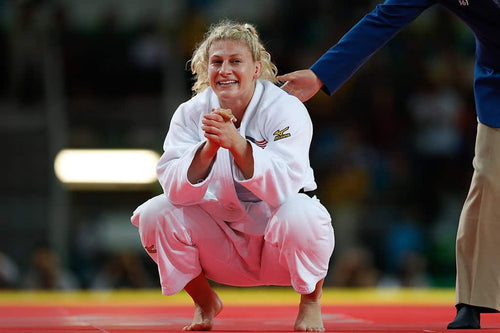
Kayla Harrison's Judo Journey - Judo Champion Turned MMA Powerhouse
Kayla Harrison is a groundbreaking American judoka who made history by becoming the first American woman to win an Ol...
-

Judo Atlanta - List of Judo Clubs in Atlanta area
In Atlanta, you can find excellent judo clubs such as Atlanta Judo Midtown and Black Ice Fitness where you can train...
-

Guram Tushishvili Disqualified - JUDO DRAMA with Teddy Riner
Guram Tushishvili Disqualified - Unsportsmanlike Behavior to French Judoka Teddy Riner Leads to Disqualification fro...
-

Yeldos Smetov - Judoka Profile
Yeldos Smetov, a name synonymous with excellence in judo, has carved out an illustrious career that stands as a beac...
-

Judo Olympics 2024 Results - Gold, Silver, and Bronze Medalists
The Judo Olympics 2024 Results are eagerly anticipated as the Paris Games approach, promising a thrilling display...
-

Judo For Self Defense - Here Is Why Is Judo Best For Self-Defense
Judo For Self Defense packs a punch. This martial art, born in Japan, turns attackers' strength against them. No nee...
-
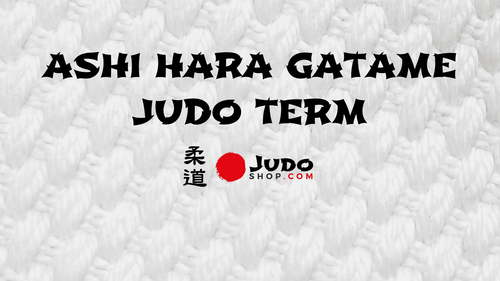
Ashi Hara Gatame - Judo Term Explained
Ashi Hara Gatame is a specialized technique in the martial art of judo, combining leg control, abdominal pressure, a...
-
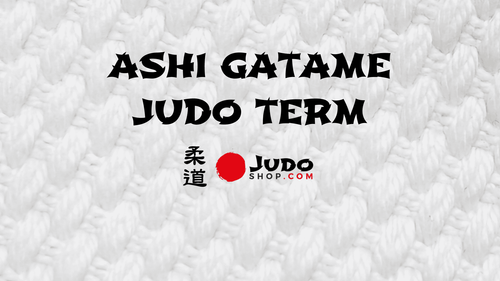
Ashi Gatame - Judo Term Explained
Ashi Gatame is a Judo technique referring to a kansetsu-waza (joint lock) where one uses their legs to immobilise ...
-

Judo Olympics 2024: Highlights, Athletes, and Schedules
Judo Olympics 2024 enthusiasts, mark your calendars! From July 27 to August 3, the Grand Palais Éphémère near the Eif...
-
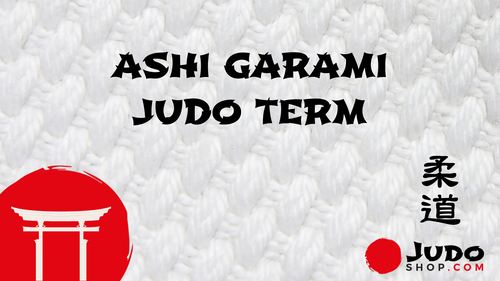
Ashi Garami - Judo Term Explained
What does "Ashi garami" mean in Judo? "Ashi garami" (足緘) is a Japanese term used in Judo that literally translates t...
-
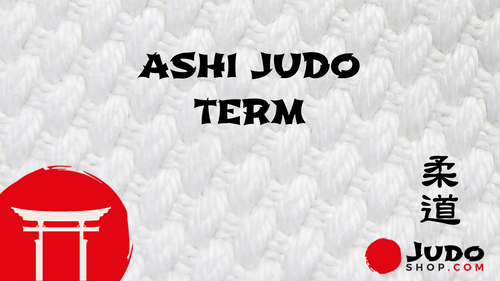
Ashi - Judo Term Explained
Ashi is term in Judo, referring to a leg or foot and category of judo techniques designed to unbalance and throw an ...
-
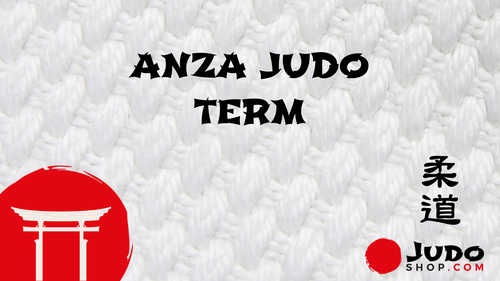
Anza - Judo Term Explained
The term Anza in Judo (安座) embodies a significant practice beyond merely sitting; it signals a deep respect and disc...
-
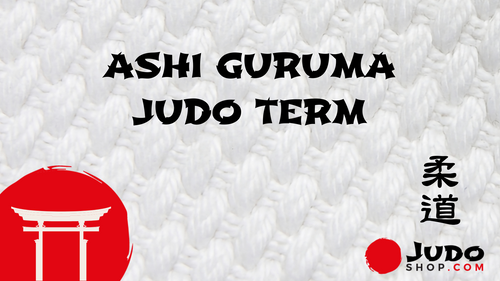
Ashi Guruma - Judo Term Explained
Ashi Guruma is a Judo term rooted in the martial art of Judo, which translates from Japanese as 'leg wheel'. This ju...
-
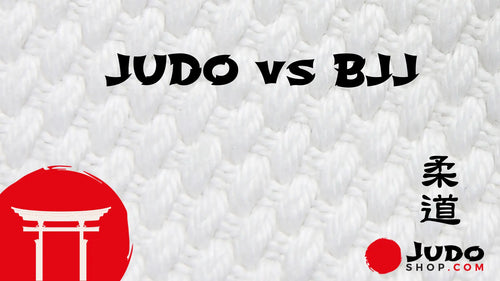
Judo vs BJJ? Of course Judo! Judo is better!
Welcome to Judoshop.com, the premier destination for judo enthusiasts worldwide. Here, we cater to beginners and vet...
-
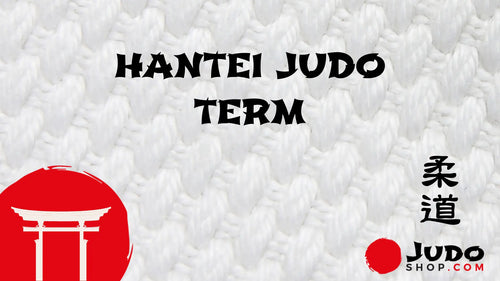
Hantei Judo Term Explanation
Contrary to popular belief, the term 'Hantei' in Judo is not just a simple decision-making process. It holds the p...
-
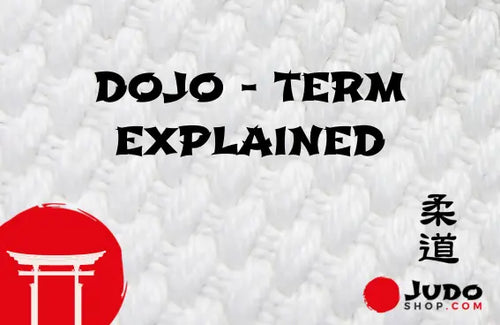
Dojo Meaning (updated 2023)
Dojos, places of immersive learning and meditation, hold great significance in martial arts. Derived from the Japane...
-
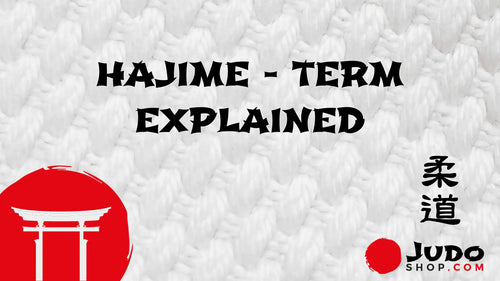
Hajime - Judo Term Explained
Ready to learn about Hajime in judo?It's all about using throws, pins, and joint locks on the mat. With the command ...
-
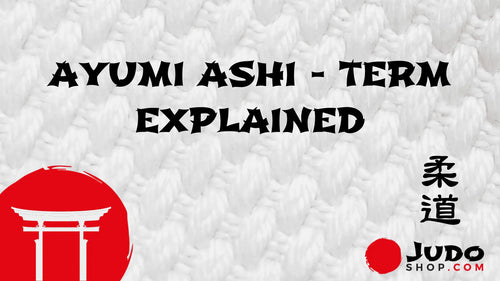
Ayumi Ashi - Judo Foot Work Explained
Are you ready to step into the world of Judo and master the art of Ayumi Ashi - 歩み足? This fundamental footwork techn...
-
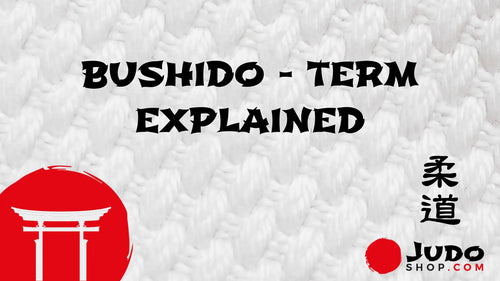
Bushido Explained
Bushido, the traditional code of ethics followed by samurai warriors in feudal Japan, is a subject that fascinates ...
-
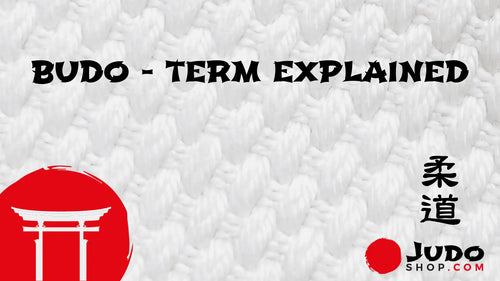
Budo - Term Explained
In a world full of chaos and conflict, one finds solace in the ancient art of budo. Contrary to popular belief, budo...
-
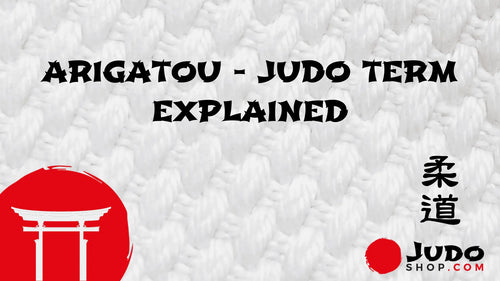
Arigatou - Judo Term Explained
Do you ever wonder about the true meaning behind the Japanese word 'Arigatou'? Well, wonder no more! 'Arigatou' is a...
-
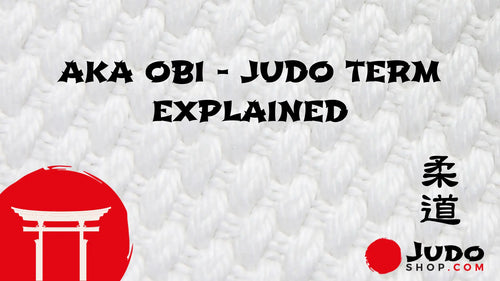
Aka Obi - Judo Term Explained
The aka obi, a red belt worn in Judo, is a prestigious symbol of expertise. Typically reserved for those holding a 9...
-

Why Are There 2 Bronze Medals In Judo
Judo is a unique sport that gives two bronze medals in each weight class. Many people wonder why this is done. To fi...
-
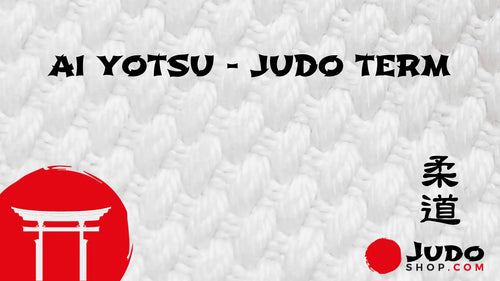
Ai Yotsu - Judo Term Explained
In the world of Judo, a term holds immense significance - Ai Yotsu. This grip, characterized by an intense and intim...
-
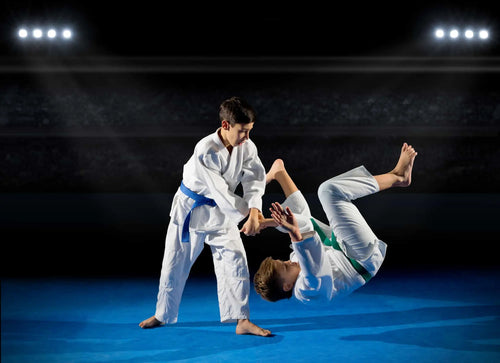
Is Judo Dangerous - Unveiling the Shocking Truths Behind this Ancient Martial Art
With its powerful throws and complex grappling techniques, one might wonder, "Is judo dangerous?" Yes, judo can po...
-

Is Judo The Toughest Sport - Unraveling the Grit and Grace of the Gentle Way
Judo, known as the Gentle Way, may seem like a paradoxical name for a sport, but don't let that fool you. While Ju...
-

Judo Terms - A Complete List of Judo Terms
Judo terms are the foundation of this martial art, and our collection is here to help both new and experienced judok...
-

English to Japanese Kanji and Hiragana translations
Are you looking for an English to Japanese Kanji translation? Here you can find more than 30 examples of Kanji and ...




























